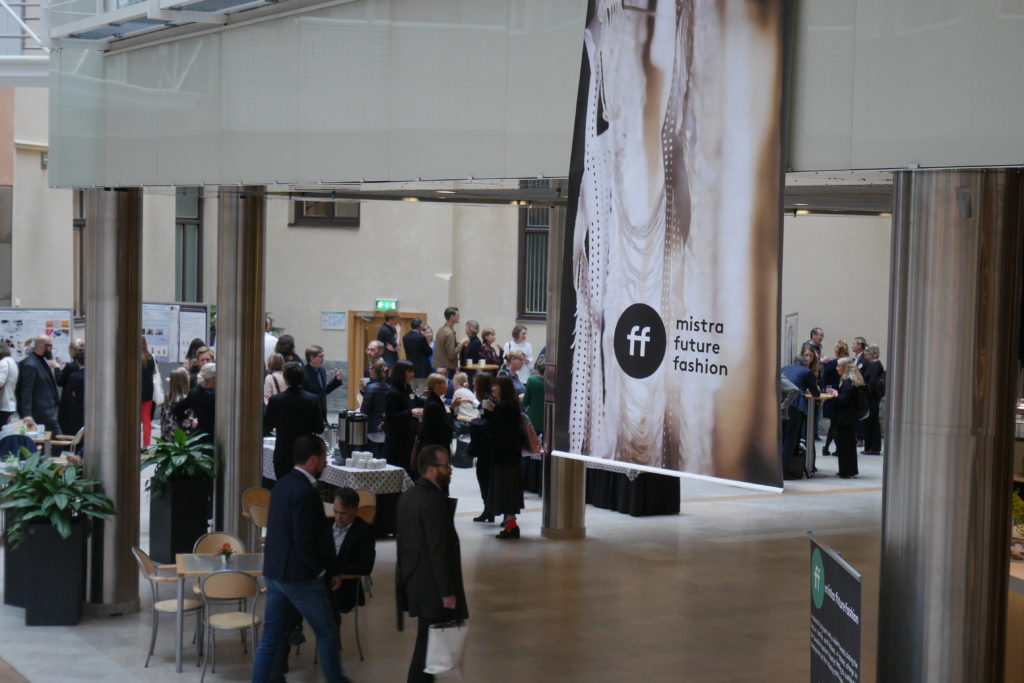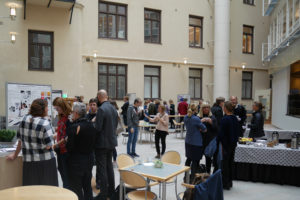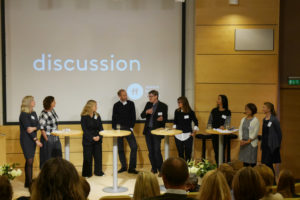
Around 90 guests, researcher partners and industry partners from all different parts of the value chain, producers, designers, fashion brands, charity/reuse, recycling, forest industry and policy makers, were gathered for Mistra Future Fashion’s Annual program meeting in Stockholm. Six years into the program it was an extensive review of results coming out from the program.
Day 1 was dedicated to review of results, new knowledge and innovations, all with purpose to contribute to the program vision, to enable a systemic change of the fashion industry and society.
Examples of this was latest theories for circular fashion, how to design for circular economy and exploring fast and slow fashion, and what’s in between. The Circular Design Speed project together with Filippa K by University of the Arts London was highlighted as industry example.
Swerea IVF’s presented their work with contribution of new LCA data on fibers, processes and including chemicals, or their microfiber analysis of why fabrics shed. Further an extensive assessment of new business models was presented by PlanMiljo and IVL, and ongoing work on demonstrators of new sustainable fibers, governance on sustainable production under the lead of Swerea IVF. Copenhagen Business School presented new statistics and knowledge about consumer behavior on sustainable fashion.
IVL and IIIEE presented their impact assessment of how to best influence textile fiber recycling including evaluating mandatory EPR and a design proposal of an efficient EPR scheme.
Recycling theme presented strong news was as the chemical recycling project Polycotton by Chalmers and RISE (together with Södra) for the first time could present real filaments in good quality of recycled cotton from polystercotton fiber blends. The process is also assessed to be highly feasible in existing production infrastructure of the pulp industry which means promisingly possibilities for implementation into industry.
Overall learnings from the program itself were also summarized – its key 3 strengths: 1) the system perspective and holistic approach, 2) the crossdisciplinary approach – linking together researchers from different disciplines together as well as interacting with practioners across the whole value chain, and last 3) the collaborative foundation among many actors across a big consortium (50+ partners).
All in all these factors are needed to address relevant issues and contribute with new relevant knowledge needed for enabling a systemic change of the fashion industry and society.
Day 2 was dedicated to 4 workshops for specific research tasks:
“Criteria for Sustainability – Practical use of the concept of Sustainability”, by Sandra Roos at Swerea IVF and Gustav Sandin Albinsson, RISE
“Making use of LCA data”, by Sandra Roos at Swerea
“Is in-built recyclability a future track of sustainable cotton coloring?” by Hanna de la Motte at RISE and Romain Bordes at Chalmers
“Driving more sustainable consumption” by Claudia Rademaker at Stockholm University and Wencke Gwozdz at Copenhagen Business School





